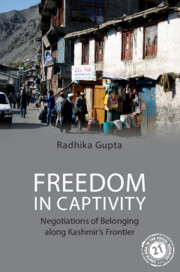Book contents
- Frontmatter
- Contents
- List of Figures
- Acknowledgements
- List of Abbreviations
- Notes on Transliteration
- Introduction: Freedom in Captivity
- 1 Genealogies of Political Consciousness
- 2 Reforming Self and Society
- 3 Fighting for Justice
- 4 Talking about Culture
- 5 Living on the Edge
- Epilogue
- Glossary
- Bibliography
- Index
2 - Reforming Self and Society
Published online by Cambridge University Press: 10 January 2023
- Frontmatter
- Contents
- List of Figures
- Acknowledgements
- List of Abbreviations
- Notes on Transliteration
- Introduction: Freedom in Captivity
- 1 Genealogies of Political Consciousness
- 2 Reforming Self and Society
- 3 Fighting for Justice
- 4 Talking about Culture
- 5 Living on the Edge
- Epilogue
- Glossary
- Bibliography
- Index
Summary
As the month of Ramadan approached in 2008, some of my reformist-minded interlocutors were looking forward to attending the majalis (religious congregations) of Shaykh Anwar. He was a popular cleric, allied with the IKMT, who came to Kargil from Iran every year. One late afternoon in mid-September, I managed to get an appointment with the shaykh. He was seated in front of a laptop next to a gas heater as the autumnal chill had crept in. After finishing his work, the shaykh turned his attention to me. As I introduced myself, he recalled being interviewed by two scholars from America a decade ago, and said, ‘I never came to know what became of their work’ – a salutary warning against extractive research. Then he narrated the story of his life.
Shaykh Anwar was born in Iraq. Hailing from a family of zildars in the Suru Valley, his father had studied in Najaf and later moved to Iran, when the shaykh was around nine years old. After acquiring ‘worldly education’ (duniya-i ‘ilm), Shaykh Anwar shifted to Islamic education at the age of eighteen. He recalled his very first visit to Kargil in the late 1980s: ‘When I saw the pathetic conditions in Kargil, I thought they are such helpless people…. I felt great pity in my heart. I felt hatred for some old persons, who for their personal gain, were taking common people in the wrong direction.’ This led him to return to Kargil every year for tabligh (preaching). Explaining his motivation, he said, ‘I could easily have gone to Arab countries if I wanted to make money. But I wanted to work for my qaum [community].’ After attending several of his majalis, in another meeting at the end of Ramadan, I asked him how he selected the topics for his lectures. ‘I take into consideration the difficulties people are facing and the weaknesses present in a society,’ he replied, adding that he kept in touch with friends and relatives in Kargil while in Iran to keep abreast of issues. Bemoaning that Kargil was a society seeped in ignorance (jahiliyat), he deployed the metaphor of a doctor dispensing cure through his majalis to an ‘ill community’ (bimar qaum).
- Type
- Chapter
- Information
- Freedom in CaptivityNegotiations of Belonging along Kashmir's Frontier, pp. 57 - 96Publisher: Cambridge University PressPrint publication year: 2023

